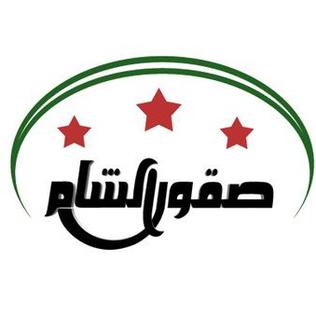Abu Yusaf is a high-level security commander in ISIL. [1] According to an interview conducted with The Washington Post , Abu Yusaf is a nom-de-guerre of a 27-year-old European Islamist who joined ISIL in 2013. [2]
Abu Yusaf is a high-level security commander in ISIL. [1] According to an interview conducted with The Washington Post , Abu Yusaf is a nom-de-guerre of a 27-year-old European Islamist who joined ISIL in 2013. [2]

Isnilon Totoni Hapilon, also known by the nom de guerreAbu Abdullah al-Filipini, was a Filipino Islamist militant affiliated with ISIS. He was formerly leader of Abu Sayyaf Group, before its battalions pledged their allegiance to Abu Bakr al-Baghdadi. An April 2016 issue of ISIL's weekly newsletter Al Naba said that Hapilon had been appointed as "emir of all Islamic State forces in the Philippines".

The Islamic State (IS), also known as the Islamic State of Iraq and the Levant (ISIL), the Islamic State of Iraq and Syria (ISIS) and by their Arabic acronym Daesh, are a transnational Salafi jihadist group. Their origins were in the Jaish al-Ta'ifa al-Mansurah organization founded by Abu Omar al-Baghdadi in 2004. The organization affiliated itself with Al-Qaeda, so IS was originally a branch of Al-Qaeda and fought alongside them during the Iraqi insurgency. IS eventually split, and gained global prominence in 2014, when their militants successfully captured large territories in northwestern Iraq and eastern Syria, taking advantage of the ongoing Syrian civil war. Notorious for their perpetration of war crimes and extensive human rights violations, IS have engaged in the persecution of Christians, Mandaeans, Shia Muslims, and Sufi Sunnis, and published videos of beheadings and executions of journalists and aid workers. By the end of 2015, they ruled an area with an estimated population of 12 million people, where they enforced their extremist interpretation of Islamic law, managed an annual budget exceeding US$1 billion, and commanded more than 30,000 fighters.

Al-Nusra Front, also known as Front for the Conquest of the Levant, was a Salafi jihadist organization fighting against Syrian government forces in the Syrian Civil War. Its aim was to overthrow president Bashar al-Assad and establish an Islamic state ruled by Sharia law in Syria.

Between 2011 and 2017, fighting from the Syrian civil war spilled over into Lebanon as opponents and supporters of the Syrian Arab Republic traveled to Lebanon to fight and attack each other on Lebanese soil. The Syrian conflict stoked a resurgence of sectarian violence in Lebanon, with many of Lebanon's Sunni Muslims supporting the rebels in Syria, while many of Lebanon's Shi'a Muslims supporting the Ba'athist government of Bashar Al-Assad, whose Alawite minority is usually described as a heterodox offshoot of Shi'ism. Killings, unrest and sectarian kidnappings across Lebanon resulted.

Harakat Ahrar al-Sham al-Islamiyya, commonly referred to as Ahrar al-Sham, is a coalition of multiple Islamist units that coalesced into a single brigade and later a division in order to fight against the Syrian Government led by Bashar al-Assad during the Syrian Civil War. Ahrar al-Sham was led by Hassan Aboud until his death in 2014. In July 2013, Ahrar al-Sham had 10,000 to 20,000 fighters, which at the time made it the second most powerful unit fighting against al-Assad, after the Free Syrian Army. It was the principal organization operating under the umbrella of the Syrian Islamic Front and was a major component of the Islamic Front. With an estimated 20,000 fighters in 2015, Ahrar al-Sham became the largest rebel group in Syria after the Free Syrian Army became less powerful. Ahrar al-Sham and Jaysh al-Islam are the main rebel groups supported by Turkey. On 18 February 2018, Ahrar al-Sham merged with the Nour al-Din al-Zenki Movement to form the Syrian Liberation Front.

The Suqour al-Sham Brigades, also known as the Falcons of the Levant Brigades, is an armed rebel organisation formed by Ahmed Abu Issa early in the Syrian Civil War to fight against the Syrian Government. It was a member of the Islamic Front and a former unit of the Free Syrian Army and the Syrian Islamic Liberation Front. They have a history of coordinating with Ahrar al-Sham and al-Qaeda's al-Nusra Front, though clashes with the latter broke out in January 2017. In March 2015, the Suqour al-Sham Brigades merged with Ahrar ash-Sham, but left Ahrar al-Sham in September 2016. Also, in September 2016, they joined the Army of Conquest, of which Ahrar al-Sham is also a member. On 25 January 2017, Suqour al-Sham rejoined Ahrar al-Sham, but later became independent.

Ansar al-Sharia in Libya was an Al-Qaeda-aligned Salafi Jihadist militia group that advocated the implementation of Sharia law across Libya. Ansar al-Sharia came into being in 2011, during the Libyan Civil War. Until January 2015, it was led by its "Amir", Muhammad al-Zahawi. As part of its strategy, the organization targeted specific Libyan and American civilians for death and took part in the 2012 Benghazi attack. The group was designated as a terrorist organization by the United Nations, Iraq, Turkey, the United Arab Emirates, the United Kingdom and the United States.

The Islamic State of Iraq was a Salafi jihadist militant organization that fought the forces of the U.S.-led coalition during the Iraqi insurgency. The organization aimed to overthrow the Iraqi federal government and establish an Islamic state governed by Sharia law in Iraq.

Kata'ib Ansar al-Sham is an armed Sunni Islamist rebel group active in the Syrian Civil War, mainly fighting against Syrian government forces.
Fadel Ahmed Abdullah al-Hiyali, better known by his noms de guerre Abu Muslim al-Turkmani, Haji Mutazz, or Abu Mutaz al-Qurashi, was the Islamic State of Iraq and the Levant (ISIL) governor for territories held by the organization in Iraq. He was considered the ISIL second-in-command ; he played a political role of overseeing the local councils and a military role that includes directing operations against opponents of ISIL. His names were also spelt Fadhil Ahmad al-Hayali, and Hajji Mutazz.

In October 2014, the self-declared Islamic State of Iraq and the Levant (ISIL) took control of numerous government buildings, security vehicles and local landmarks in the Eastern Libyan coastal city of Derna. Although some media outlets reported the control as being absolute, rival groups like the al-Qaeda-affiliated Abu Salim Martyrs Brigade continued to control parts of the city. Clashes erupted between ISIL and an alliance of Islamist groups in June 2015, with ISIL retreating from Derna to outlying suburbs the following month. However, clashes continued between the Islamist alliance and the Tobruk-based government forces.
The ideology of the Islamic State has been described as being a blend of Salafism, Salafi jihadism, Sunni Islamist fundamentalism, Wahhabism, and Qutbism. Through its official statement of beliefs originally released by its first leader Abu Omar al-Baghdadi in 2007 and subsequently updated since June 2014, the Islamic State defined its creed as "a middle way between the extremist Kharijites and the lax Murji'ites".

The Sheikh Omar Hadid Brigade, also known as Islamic State in Gaza, is an Islamist militant group affiliated with the Islamic State in Iraq and the Levant that was reportedly active in the Gaza Strip around 2015. Its goals have consistently matched those of the Islamic State, in that it seeks to establish the al-Sham caliphate. As such, it opposes all forms of Palestinian nationalism while also supporting the elimination of all Jews and other ethno-religious 'infidels' from the region.
On 26 June 2015, attacks occurred in France, Kuwait, and Tunisia, one day following a deadly massacre in Syria. The day of the attacks was dubbed "Bloody Friday" by Anglophone media and "Black Friday" among Francophone media in Europe and North Africa.
2013 was the year in which the jihadist group Islamic State of Iraq and the Levant adopted that name. The group expanded its territorial control in Syria and began to do so in Iraq also, and committed acts of terrorism in both countries and in Turkey.
In early 2014, the jihadist group Islamic State of Iraq and the Levant captured extensive territory in Western Iraq in the Anbar campaign, while counter-offensives against it were mounted in Syria. Raqqa in Syria became its headquarters. The Wall Street Journal estimated that eight million people lived under its control in the two countries.
This article contains a timeline of events from January 2015 to December 2015 related to the Islamic State of Iraq and the Levant (ISIL/ISIS). This article contains information about events committed by or on behalf of the Islamic State, as well as events performed by groups who oppose them.
Collaboration with the Islamic State refers to the cooperation and assistance given by governments, non-state actors, and private individuals to the Islamic State (IS) during the Syrian Civil War, Iraqi Civil War, and Libyan Civil War.
Abu Khalid al-Suri, also known as Mohamed al-Bahaiya or Abu Umayr al-Shami, was a Syrian Islamist insurgent who was often affiliated with the Muslim Brotherhood, Osama Bin Laden and the Syrian Islamist group Ahrar al-Sham. Al-Suri is also said to be a veteran, having participated in fighting in Afghanistan, Bosnia and Herzegovina, and Iraq. He was believed to be assassinated by an ISIL suicide attack in 2014, however ISIL denied involvement in the attack or regarded it as friendly fire.
The origins of the Islamic State group can be traced back to three main organizations. Earliest of these was the "Jamāʻat al-Tawḥīd wa-al-Jihād" organization, founded by the Jihadist leader Abu Mus'ab al-Zarqawi in Jordan in 1999. The other two predecessor organizations emerged during the Iraqi insurgency against the U.S. occupation forces. These included the "Jaish al-Ta'ifa al-Mansurah" group founded by Abu Omar al-Baghdadi in 2004 and the "Jaysh Ahl al-Sunnah wa’l-Jama’ah" group founded by Abu Bakr al-Baghdadi and his associates in the same year.